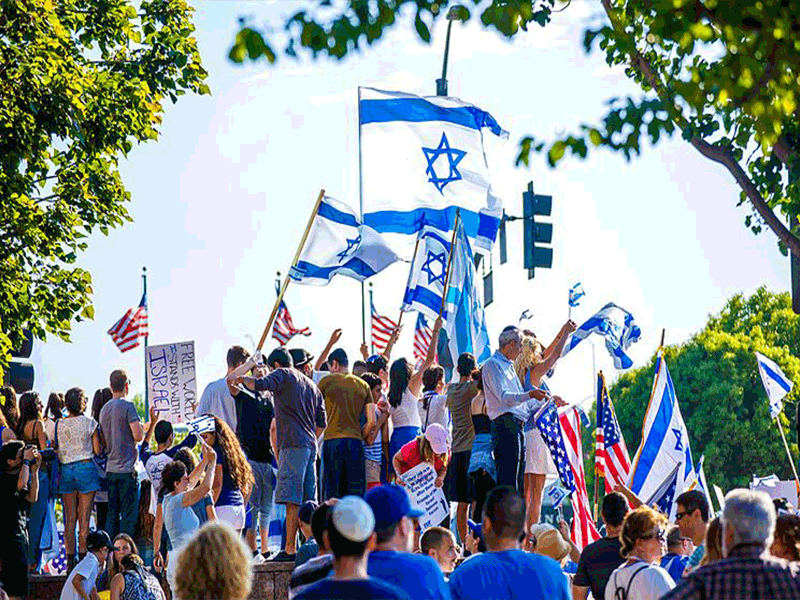The headlines are filled with the news of the growing rupture between Israel and the Diaspora. But in Jerusalem this summer, the streets are filled with record numbers of Diaspora Jews attending Birthright, participating in the Maccabiah Games or simply enjoying the shuk, the Jewish Quarter and, yes, even the Western Wall. That old song from the 1970s is correct: We are Family. Sure, we can fight. We can understand that solidarity doesn’t require sameness. But when we come together, we can enjoy all the ties that unite us.
In some ways, the headlines are reversed. Considering how different an experience Canadian and Israeli kids have growing up, it’s not surprising that they differ. The headlines should scream: “Different Jews Nevertheless Find Common Ground!”
Diaspora Jews are Isaiahan, emphasizing the biblical prophet’s Jewish values and universal ideals. Israeli Jews, on the other hand, are Davidic, emphasizing the biblical king’s Jewish values and universal ideals expressed through a sovereign Jewish state’s sobering realities and tremendous opportunities.
‘as numerous polls have confirmed, [israeli jews] are generally more traditional, community-oriented, self-sacrificing, nationalistic and conservative, and less tolerant [than diaspora jews]’
It’s logical that most Diaspora Jews are Isaiahan: liberal values of tolerance and respect for minorities keep Jews welcome in their Diaspora homes and allows them to develop the kind of pluralistic Jewish identities most of them want to have. Similarly, Israeli citizens are naturally hardened by the sometimes tough choices any state needs to make in order to survive – especially a state surrounded by enemies. Moreover, as a proportionally represented democratic state with a Jewish majority, Israel must find political solutions to many of its dilemmas, which means that it must balance competing interests.
Still, the increasingly typical rhetoric from Diaspora Jews who repudiate “Bibi’s Israel” as theocratic and anti-democratic reflects the discomfort of Diaspora-based Isaiahans with the Israeli-based Davidic approach.
READ: THE EARLIEST SHOW IS BRANDED CONTENT TV THAT’S ACTUALLY GOOD
By his or her 18th birthday, the typical young Israeli is already more Davidic than the ordinary Diaspora Jew – for better or worse. As Diaspora Jews labour to get into college, Israeli Jews prepare for the army. Israelis devote years of their lives to serving the state at this critical life stage, rather than advancing their careers. As numerous polls have confirmed, this generally makes them more traditional, community-oriented, self-sacrificing, nationalistic and conservative, and less tolerant – less Isaiahan. Israeli Jews marry earlier, have more children and stay married longer than North American Jews. Israelis are more likely to believe in God and have a more traditional Jewish identity. Studies show that they are also happier and have a greater sense of community and purpose. They are also more likely to express anger toward Arabs, to earn less and – in an ideological blow to Zionism – to move away from their home, temporarily or permanently.
We see the contrasts when Birthright participants visit Har Herzl, Israel’s military cemetery, along with their Israeli counterparts. Just half an hour earlier, while driving together on the bus, they are all dressed alike, and they all look alike. But at the cemetery, the eight Israelis are dressed crisply in their uniforms, looking far more serious, mature, hardened and Middle Eastern than their 40 newfound Canadian friends. The superficial witness, the wedge-maker, will emphasize that difference through the ceremony, noting that these Davidic warriors convey a sombreness as they mourn friends and relatives that they lost in combat, while the Canadians, even if they cry, seem lost and disoriented.
But if one lingers long enough after the ceremony, that person will see the group re-form as they all come together again in civilian clothes. They laugh together, kibitz together, but also now understand each other more profoundly, as they are steeped in mutual empathy, affection and respect. This process often Davidizes the Diaspora Isaiahans, Isaiahifies the Israeli Davids and makes friends for life. It just doesn’t make the headlines.







